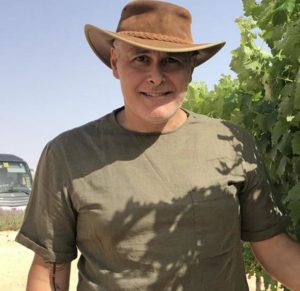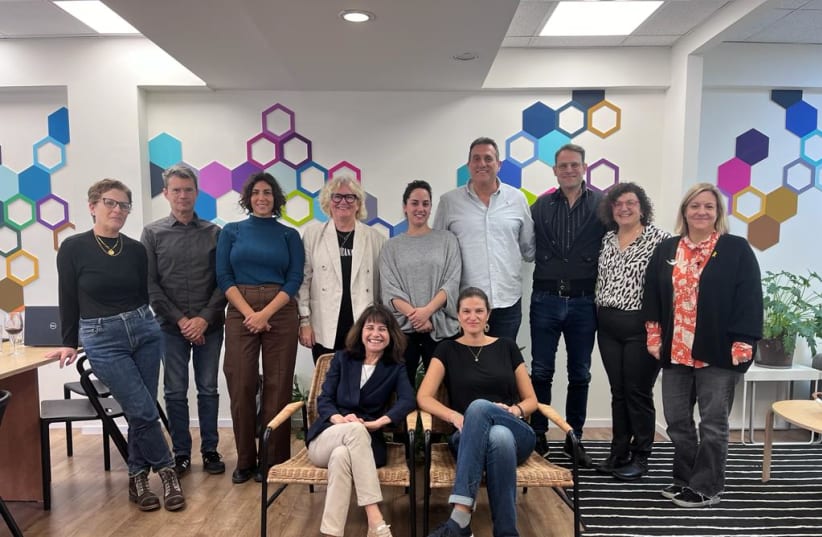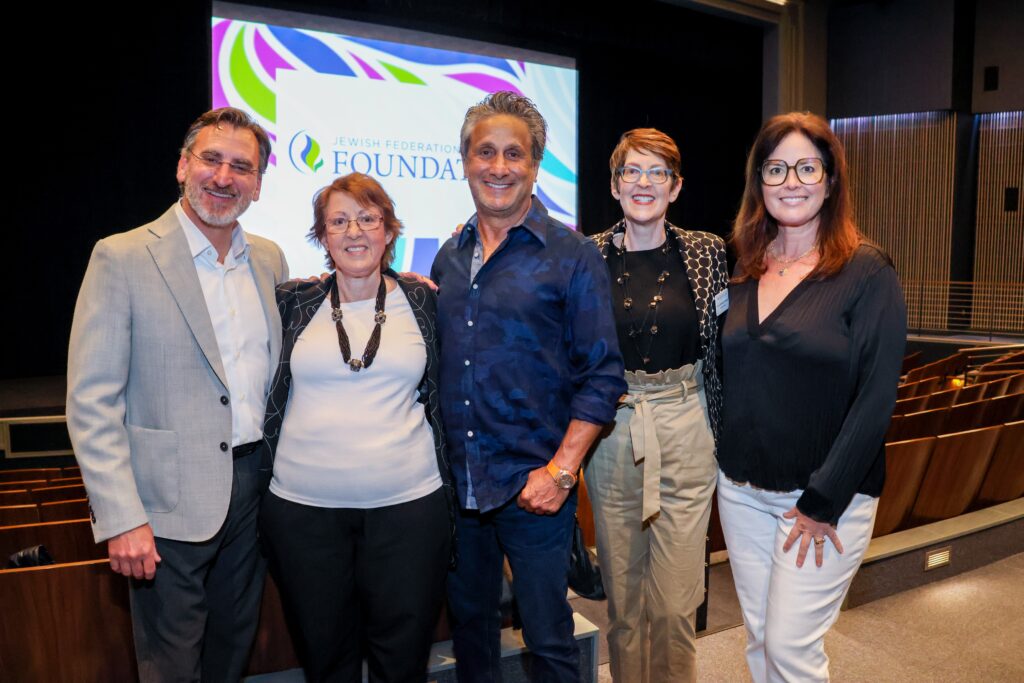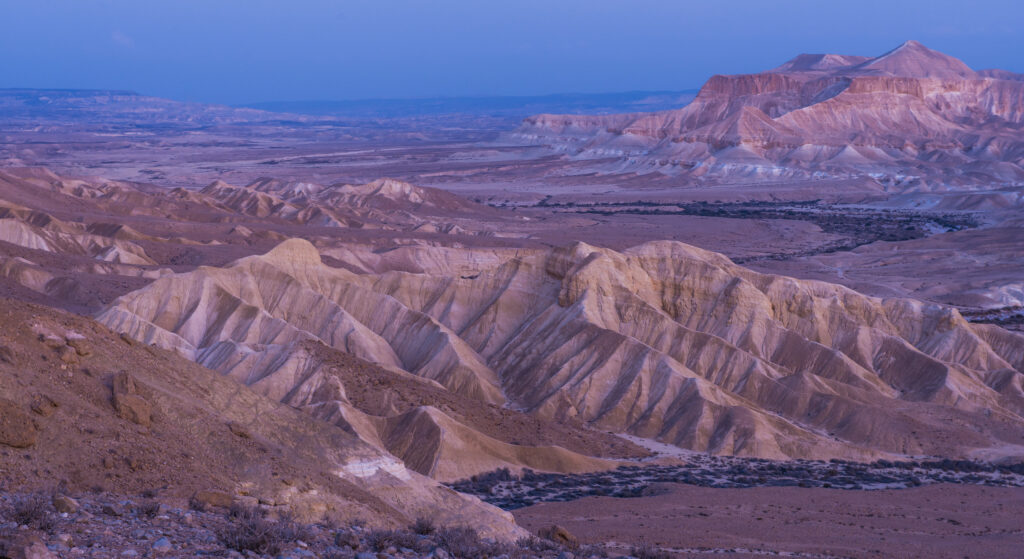
IJN: Climate Change Changes Grape Growing
IJN: Climate Change Changes Grape Growing
July 25, 2022
Desert & Water Research, Sustainability & Climate Change
Intermountain Jewish News — Winemaking is both an art and a science. But the art is pleasing only if the science is correctly understood and applied. The science has become the life’s work of Prof. Aaron Fait, a faculty member of the French Associates Institute for Agriculture and Biotechnology of Drylands at Ben-Gurion University’s (BGU) Jacob Blaustein Institutes for Desert Research. An expert in plant metabolisim and stress response in crops, his lab focuses on advancing desert agriculture and grape cultivation in a changing climate.
Growing grapes in a desert such as Israel’s Negev is inherently a challenge, but it is now compounded by the changing climate. Not to worry — Fait and his team are on it.
Fait, who will be speaking at Americans for Ben-Gurion University’s Water to Wine event on August 10 at Chabad JCC in Aspen, grew up in northern Italy, near the border with Austria. “There we have huge vineyards and we drink really nice wine. “But in the past 20 years, I learned from the farmers there and in another region of northern Italy that the plants were suffering in vineyards, especially vineyards 30 years and older. They were collapsing and that motivated me to explore the impact of climate change on viticulture.”

Prof. Aaron Fait, faculty member of the French Associates Institute for Agriculture and Biotechnology of Drylands at BGU’s Jacob Blaustein Institutes for Desert Research
Fait went to Ben-Gurion in 2008, and started to meet with farmers in the Negev Desert who were just starting to set up new vineyards in the Negev plateau, which receives less than four inches of rainfall a year. “They were using European methods of grape growing, especially from the French viticulture tradition. I asked myself, ‘Is it really a European methodology that is needed here in the desert, in an era of climate change, or can we do better?’ We can reinvent desert viticulture as the Nabateans did in their time when there was no drip irrigation, no roads, no refrigeration. They had to cope with actual challenges that our farmers today need to cope with again because of temperature increase in the region and worldwide. “This brought me to the decision that I had to do something, and since I’m a plant biochemist, I decided to get involved.”
Fait says the viticulture world has been feeling the global warming trend for about 20 years, but most of the world, especially in the Mediterranean basin, is not prepared mentally for the switch to what he calls “climate-affected agriculture.” Higher temperatures result in increased radiation on the grapes, according to Fait, causing a rethinking of the way grapevines are pruned. Fait points to viticulture in Cyprus, which has a semi-arid climate similar to that of the region north of Beersheba in the Negev, even though the island country gets nearly double the rainfall that the northern Negev does. Cyprus, he says, utilizes a traditional method of pruning the grapevines, called “goblet,” where the vine is shaped like an inverted cone, “which is against any logic for an arid environment,” but the leaves shield the grapes from the radiation of the sun.
In California and in Israel, the prevailing pruning method has been VSP — vertical shoot pruning. “It has been the easiest way of managing high density, high production of grapes. The bunches of grapes are in front of the farmer, almost devoid of leaves covering them, so it’s fairly easy to spray and to mechanically harvest. But it’s the worst thing for environments like the Negev or like California, where you have radiation kicking the fruits. Because we don’t have clouds in the desert, the exposed berries can reach a temperature of about 115ºF for a couple of hours for one to two months, depending on the variety. Eventually, a white wine will taste like an apple pie because it will be oxidized and the aroma precursors will change. A red wine will also become oxidized and you will see in your glass a brownish hue in the wine, not a nice purple wine.”
Asked if he is involved in creating new hybrids of grapes better suited to warmer temperatures, Fait responds that he and his colleagues “believe that before we start to create new hybrids, we need to make the farmers adopt the correct practices for a climate change environment. This means correct irrigation; this means cluster defense, using shading elements or the correct canopy [pruning], or using the correct variety of grapes for the climate.”
On the grand scale, Fait’s work at BGU will benefit the international wine industry and, more specifically, the Israeli wine industry, which has grown in size and importance over the past two decades. “I have been in Israel 30 years. When I first got here, when you went to the market, you found possibly riesling as a white wine, and maybe merlot and cabernet as red wines, and they were all Carmel [northern Israel] wineries. If you enter a market today, you have dozens of Israeli wineries from which to choose and a really large number of varieties, quality levels and prices. The industry simply bloomed in the past 20 to 30 years. This is because Israelis changed their mentality. They opened up to the world, to Europe, to drink good wines, and the Israeli viticulture and wine industry reacted accordingly.”
Fait says the Israelis are producing 40-50 million bottles a year. And now Fait and his colleagues are urging the Israeli wine industry — starting with the farmers — to “react correctly” to the changing climate, ultimately for the future success of this important segment of the Israeli economy and international image. “I’d like to invite all of the Jews of the US, and especially those interested in wine to come to the Negev Desert in Israel and really feel what it is like to drink a bottle of white wine, for example a chenin blanc, in the desert, produced in the desert where nothing else is green besides the vines in the summer. And simply stay silent and taste it and listen to the window of the desert. That’s really a fantastic experience.”
Read more in Intermountain Jewish News >>



